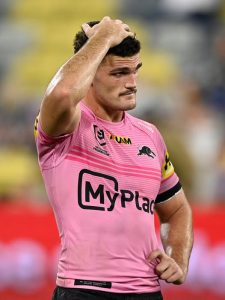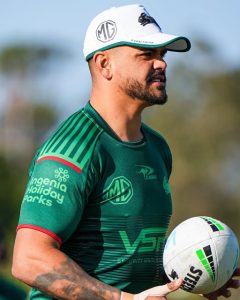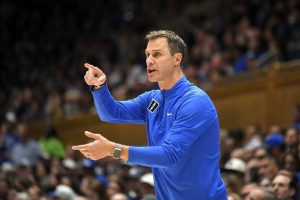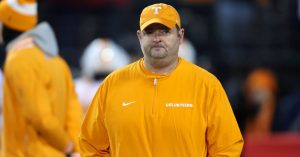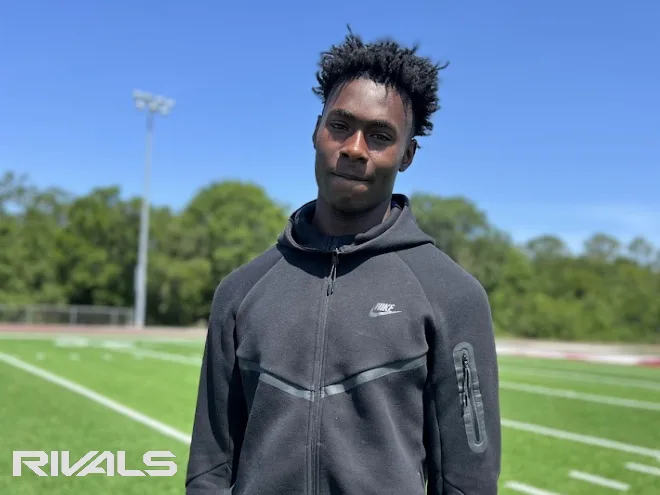
When it comes to the highly competitive world of college football recruiting, few stories capture the drama and determination like that of elite defensive back Jaelen Waters. In an era where top prospects are courted relentlessly by powerhouse programs across the country, Waters’ steadfast commitment to the University of Miami stands out as a testament to loyalty, vision, and the magnetic pull of the Hurricanes’ resurgence. Despite a whirlwind recruitment process involving multiple Southeastern Conference (SEC) schools — many of whom are perennial national contenders — Waters remained firm in his decision to don the iconic orange and green, a move that has energized Miami’s recruiting class and raised expectations for the program’s future.
Jaelen Waters’ journey to becoming one of the nation’s premier defensive back prospects began long before the recruitment frenzy hit its peak. From a young age, Waters displayed a natural affinity for football, combining speed, instinct, and physicality that set him apart on the field. Coaches and scouts quickly noticed his potential as a lockdown cornerback with the ability to shadow the best receivers while also delivering punishing hits in run support. His combination of size, agility, and football IQ made him a coveted target for college programs nationwide.
The Miami Hurricanes, under the leadership of their head coach, have been focused on rebuilding a program that once dominated college football. Historically known for producing elite defensive backs — a lineage that includes NFL legends and current stars — Miami has a reputation as a “DB U” that Waters found deeply appealing. The program’s renewed commitment to defense, combined with a clear vision for player development and NFL preparation, made the Hurricanes a natural fit for a young man with big aspirations.
However, Waters’ recruitment was anything but a straightforward affair. The SEC, widely regarded as the most competitive conference in college football, launched an aggressive push to flip the elite defensive back’s commitment. Programs such as Alabama, Georgia, LSU, and Florida — all boasting rich football traditions, state-of-the-art facilities, and proven track records of developing NFL talent — made their cases emphatically. Each school offered Waters not just a scholarship, but a comprehensive package of opportunities, exposure, and championship potential that would tempt any top-tier recruit.
Despite the allure of the SEC’s glamour and national spotlight, Waters carefully weighed his options. He took official visits, engaged deeply with coaching staffs, met with players, and considered the academic and cultural environments each school provided. Yet, it was Miami’s vision and authenticity that ultimately resonated most with him. The Hurricanes’ coaching staff demonstrated a genuine commitment to Waters’ growth as a player and a person, emphasizing a family-like atmosphere and a culture of accountability. That personal connection played a pivotal role in Waters’ decision-making process.
Moreover, Waters recognized the unique opportunity at Miami. The Hurricanes are on an upward trajectory, eager to reclaim their place among college football’s elite. Being part of a revitalization effort — one that promises immediate playing time and leadership responsibilities — appealed to Waters’ competitive spirit and desire to make an impact early in his college career. While the SEC programs are certainly impressive, Waters saw in Miami a chance to be a foundational piece of something special, to write a new chapter in the storied history of Hurricanes football.
This commitment also speaks volumes about the changing landscape of college recruiting. Whereas previously the SEC’s dominance was virtually unchallenged, programs like Miami are closing the gap through strategic coaching hires, enhanced facilities, and a strong recruiting presence in talent-rich areas. Waters’ pledge is a signal to other top prospects that Miami is a destination worthy of serious consideration, even when competing with the juggernauts of the SEC.
Critics might have expected Waters to succumb to the pressures and prestige associated with SEC programs. After all, the financial resources, media attention, and immediate chances to compete for national championships are factors that have historically drawn elite athletes to that conference. Yet, Waters’ choice reveals a different narrative — one where player fit, personal relationships, and long-term development outweigh flashier offers. It underscores a growing trend where recruits seek environments that prioritize their holistic development and align with their personal goals.
The Miami Hurricanes also stood out by emphasizing their commitment to academic excellence and player welfare. Waters and his family were reassured by the program’s support systems, including tutoring, career counseling, and mental health resources. Such infrastructure is increasingly vital as student-athletes balance the demands of elite-level sports with the pursuit of higher education and preparation for life beyond football.
Waters’ commitment energizes the Hurricanes’ recruiting class in a significant way. Landing an elite defensive back of his caliber not only boosts the team’s immediate defensive prospects but also sends a message to other recruits about Miami’s ability to attract and retain top talent. His decision is likely to inspire confidence among current players and fans, reinforcing the belief that the Hurricanes can compete with any program in the country.
For Miami, Waters’ choice is a recruitment coup. It validates their recruiting strategies and highlights the effectiveness of their coaching staff’s approach to relationship-building and player development. As the Hurricanes continue to ascend, Waters will be one of the cornerstones around which the defense is built, and his influence will likely extend beyond the gridiron as a leader in the locker room.
From Waters’ perspective, the commitment offers a platform to showcase his talents on a national stage while contributing meaningfully to a program that values his input. The Hurricanes’ defensive schemes and coaching philosophies align well with his style of play, promising a smooth transition to the collegiate level and the opportunity to refine his skills against high-caliber opponents.
The story of Jaelen Waters is emblematic of the complex dynamics involved in elite college football recruiting today. It’s a tale of choices influenced by more than just rankings and money — a narrative enriched by values, culture, relationships, and the hope of being part of something greater than oneself. Waters’ decision to remain solid with Miami despite the SEC’s formidable push illustrates that the heart of recruiting still beats strongest when authenticity and vision meet opportunity.
As the 2025 football season approaches, all eyes will be on Jaelen Waters as he dons the Hurricanes’ uniform. His journey will be followed closely by analysts, fans, and recruiters alike, curious to see how his talents translate to the college game and how he helps propel Miami to new heights. If his recruitment saga is any indication, Waters possesses not just the physical gifts but also the mental fortitude and commitment to succeed at the highest level.
In conclusion, Jaelen Waters’ choice to stick with Miami despite the SEC’s relentless efforts is a defining moment for both the player and the program. It exemplifies the evolving nature of college football recruiting and highlights the importance of a holistic approach to attracting and nurturing talent. For Miami, Waters represents a beacon of hope and a vital piece of their resurgence. For Waters, it is a carefully considered step toward fulfilling his dream of football greatness while staying true to his values and vision. The Hurricanes and their fans can look forward to a bright future with Jaelen Waters in their defensive backfield — a future built on trust, talent, and unwavering commitment.

